Visiting the Rochdale Pioneers, in 1844 and today
Hey there,
this is Harry and today I’ll not only take you on a train journey to the small English town of Rochdale, but also back in time to December 1844—because something absolutely miraculous happened in Rochdale almost 180 years ago! It’s safe to say that without those historic events, our company Village One wouldn’t exist in its current form. Sounds like a stretch? Well, let’s find out, hop aboard, the train is leaving the station!
You see, earlier this year I spent a month in the UK in Yorkshire, close to where my dear colleague Sev lives. One morning we got up early, met in Leeds, boarded a train and went out to a small town called Rochdale, close to Manchester. If you’re familiar with the history of cooperatives, then you already know where this is going: We are about to visit the very place where the Rochdale Pioneers kickstarted the modern cooperative movement in 1844.
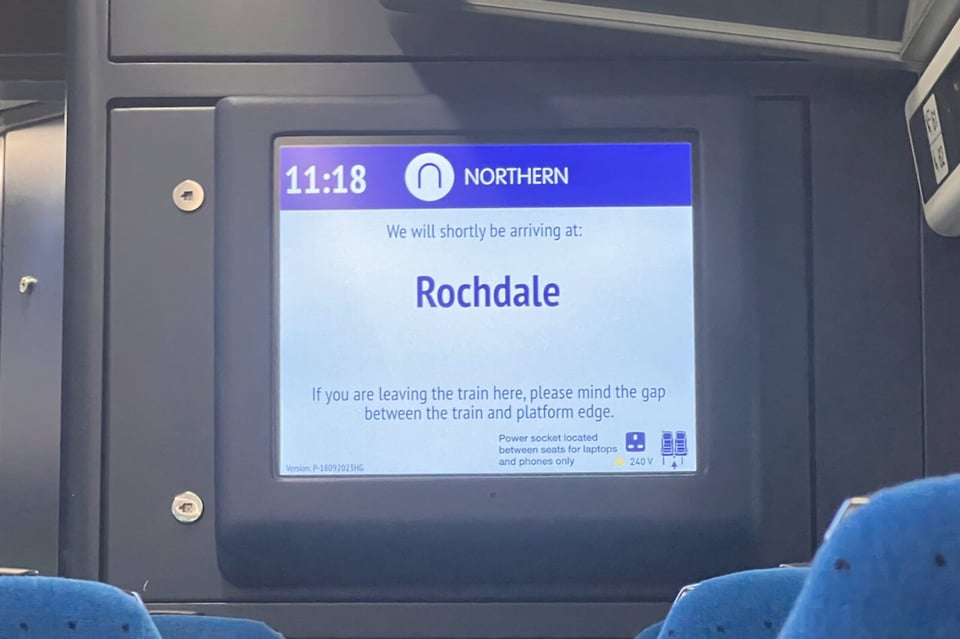
While we’re still on the train, let’s quickly recap what life was like for the working class in England in 1844!
It’s the middle of the 19th century, we’re in the last stages of the industrial revolution and working conditions are dire: Factories are dangerous places for workers, injuries abound, work days are long, with 12-14h shifts being the norm (for six days of the week, mind you), and child labor is still commonplace. Pay is low, there is no health care or pension from the state. The average life expectancy is only 40 years, probably even significantly lower for the working class. As the work days are so long, there is little time to buy any groceries: Most shops are already closed by the time workers get out of the factories. In remote places this also leads to company-owned stores, where employees have to buy overpriced food of bad quality. They might even receive their salary in company scrip, a kind of voucher money that can only be spent at those company stores, funneling the salary back to the employer, trapping workers at their workplace, unable to save real money.
Out of this situation 28 working-class men boldly decide they have enough and need to change something for the better: They save one pound each (~150 pounds in today’s money) and start a project that will change the course of history.
Here’s their deceptively simple plan: They intend to open a store, selling honest food at honest prices to the working class and, crucially, make all customers co-owners of the business. Wait, what? Inspired by utopian contemporaries like Robert Owen, they devise the creation of a democratic business: Customers would become members and all members are to make decisions about the company’s future, together, with one person having one vote. There’s even a profit-sharing mechanism that becomes known as “the divi”. What’s happening here is the formation of one of the first consumer cooperatives, and they give themselves the absolutely epic name Rochdale Society of Equitable Pioneers.
Early on they write down a list of principles, that will guide their way forward:
Open Membership
Democracy
Dividend on surplus in proportion to trade & capital
Limited interest on capital
Political & religious neutrality
Cashtrading (no credit extended)
Promotion of education
Note: There is some debate when these principles originate and there are a few different revisions, but this is the list presented in the museum we’re about to visit. Similarly, it’s unclear whether the original founders were indeed 28 men and how many of them were actually working-class weavers. Many original records have been lost to time, so the line between historical facts and convenient myths is often blurry.
At first nobody thinks they can pull it off; they are ridiculed, have trouble getting a lease on a place and no gas company wants their business. But against all odds they finally open a tiny store in December 1844, at Toad Lane in Rochdale. During these early days they can only stock the absolute basics, such as butter, sugar, flour and eggs, because they have to roll their goods from Manchester to Rochdale by wheelbarrow (that’s a four hour walk without a wheelbarrow, according to Google Maps)!
Their dedication, novel approach and hard work pays off and their shop becomes a success, changing countless working class lives for the better and serving as a template for similar endeavors: After just one year they already have 80 members, 600 by 1850 and by 1900 almost 1500 cooperatives exist all over the UK. Here’s a photo of 13 of the original Rochdale Pioneers, taken in 1865:
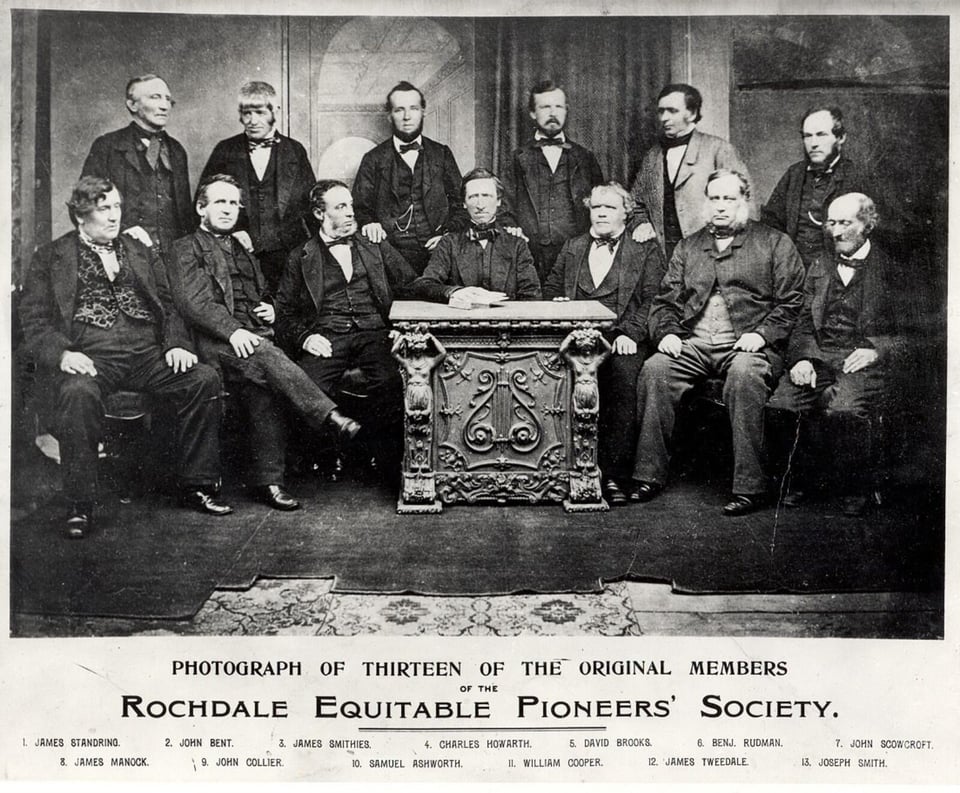
Those people were radical social dreamers in the truest sense: Women could also become equal members with full voting rights (and did so as early as 1846) and as the business grew, they soon established a minimum wage. Both of these initiatives predated national laws by several decades. It’s hard to conceive today how far ahead the pioneers were in terms of democratic inclusion: Remember, in 1844 Britain was not yet a democracy—all adult men would only gain voting rights in 1884, women in 1928. Besides the democratic aspect, the pioneers also put a strong emphasis on education, with a reading room and library above the shop, and even scientific instruments that can be borrowed.
It’s important to note that the Rochdale Pioneers weren’t the first cooperative by any means—cooperation as an idea is as old as humanity itself and there have always been cooperatively run businesses around the world, especially in indigenous communities. The Rochdale Pioneers often take all the spotlight and other efforts get sidelined. Even in Rochdale itself there were other cooperative endeavors pre-dating the pioneers, for example the “Rochdale Friendly Co-operative Society” from 1830. However, what makes Rochdale special is that they were one of the first commercially successful cooperatives on a larger scale and that they gave us the cooperative principles, which are still held up by the International Cooperative Alliance today (with a few additions and adjustments).
The Rochdale Pioneers were so wildly successful that they soon opened more shops and were involved in starting CWS, the Cooperative Wholesale Society. If you’re familiar with the Co-Op supermarkets in the UK: They are a direct descendent, so their legacy lives on. Other countries have similar consumer-owned supermarkets as well, e.g. S-Market in Finland or Migros in Switzerland. In some cases you might not even realize they are cooperatives (the employee-owned Waitrose is a good example). Special shout-out to our friends at SuperCoop here in Berlin!
Alright, that’s the history lesson, next station is Rochdale, present day, let’s get to the museum already, shall we?
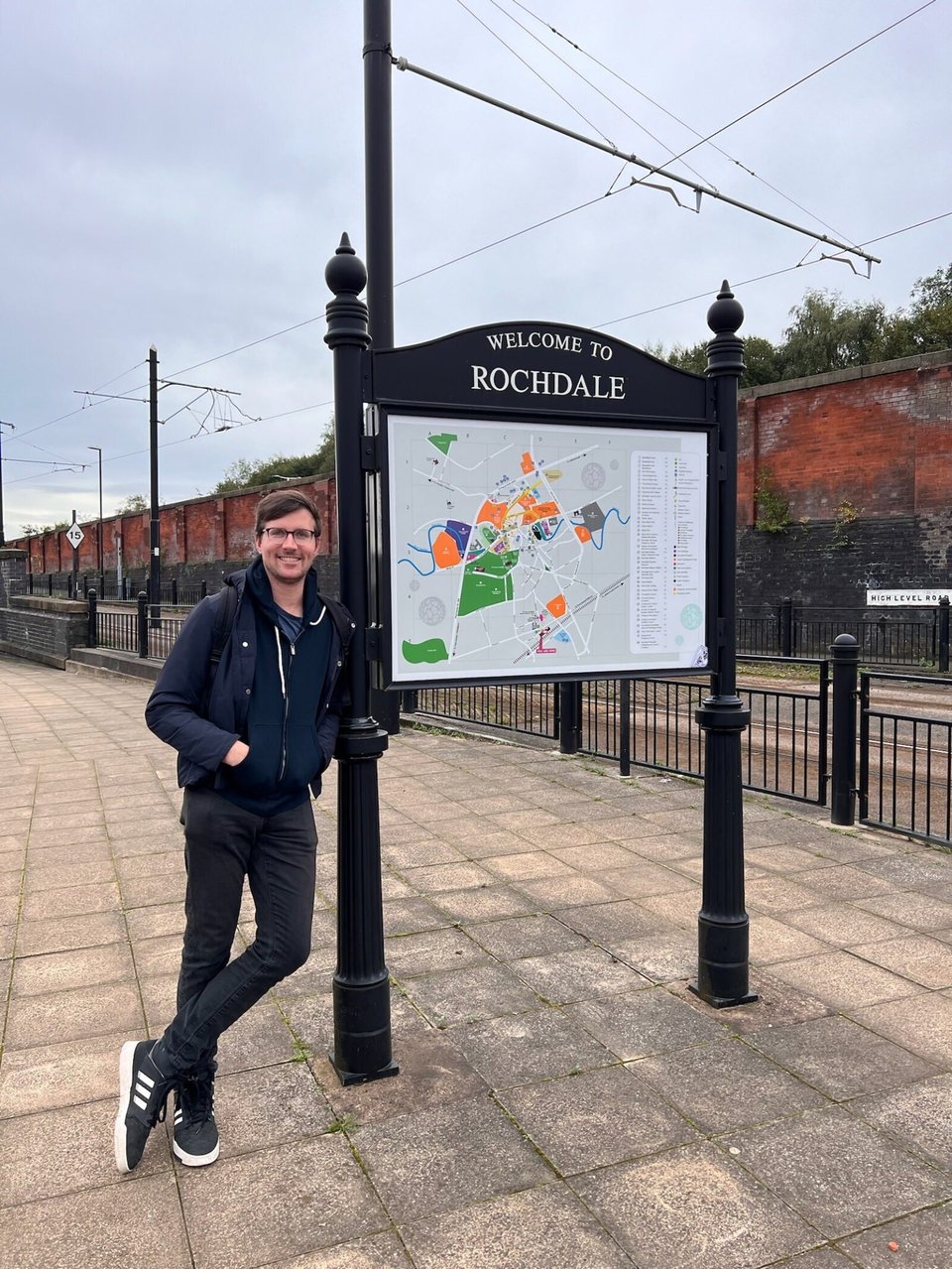
After we got off the train and left the train station, stepping into a light drizzle, we made our way across town, to the museum. Took us a while, but finally, we rounded a corner and there it was, the original Pioneers store, at Toad Lane! It may sound odd, but this was a goosebumps moment for me.
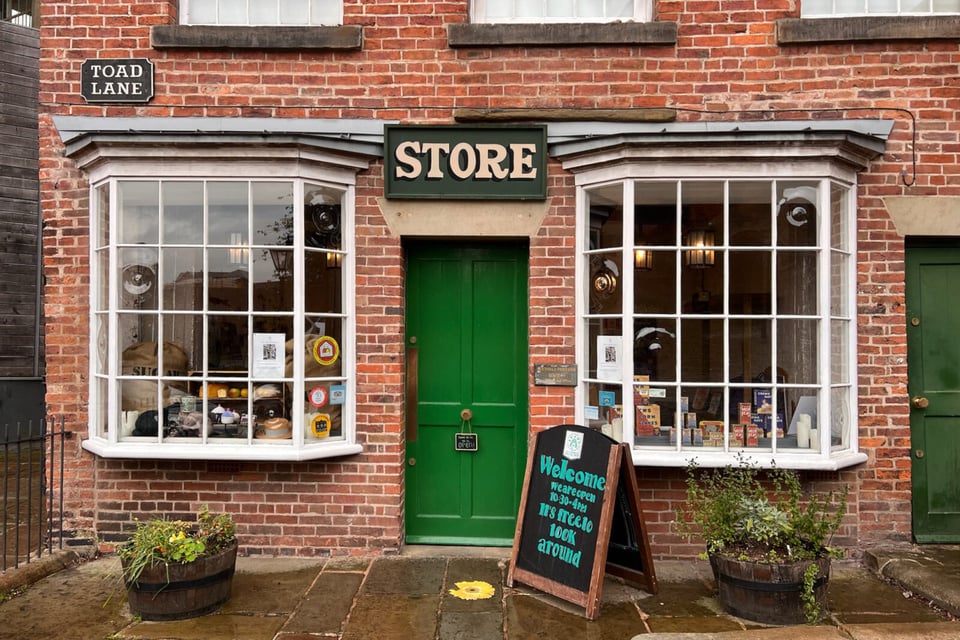
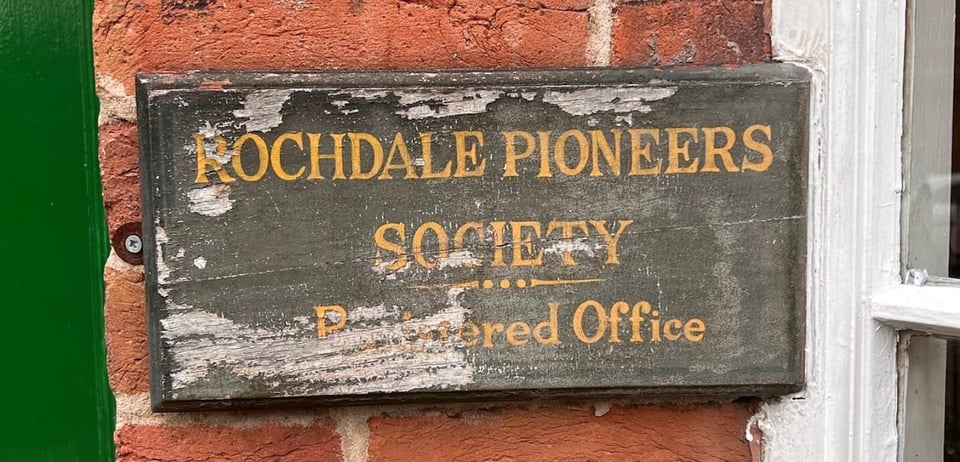
Upon entering, we were immediately greeted by super friendly staff, asking us about our connection to cooperatives and after a bit of chatter we started exploring the place. The museum is small, but packed with historical artifacts and interesting stories about the Pioneers: For example there was a picture of a new store building from 1867—the building itself doesn’t exist anymore, but can you spot the beehive ornament at the very top? That piece is still around, in the backyard of the pub next door! Needless to say, we had to check it out (the pub and the beehive)!
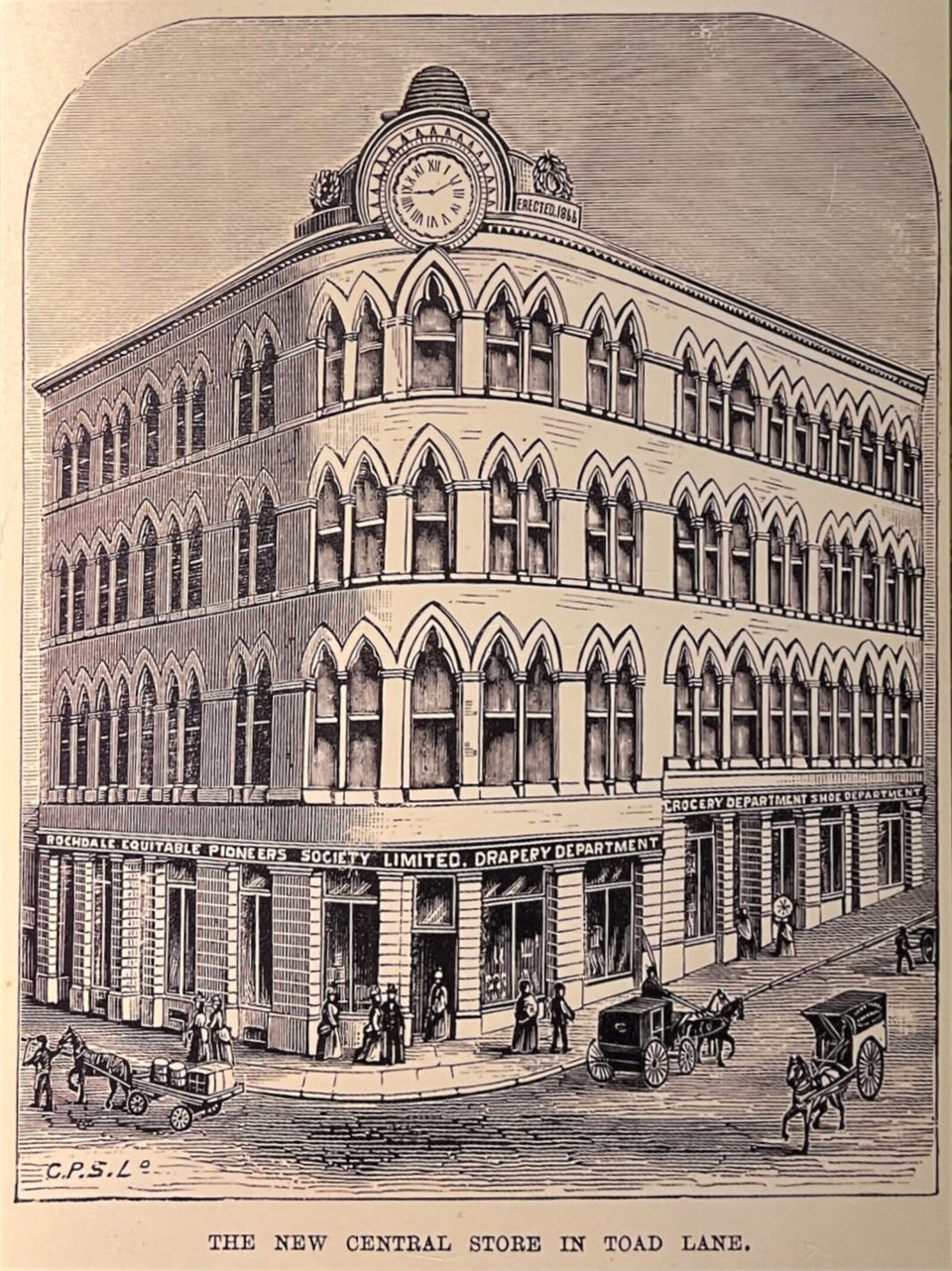
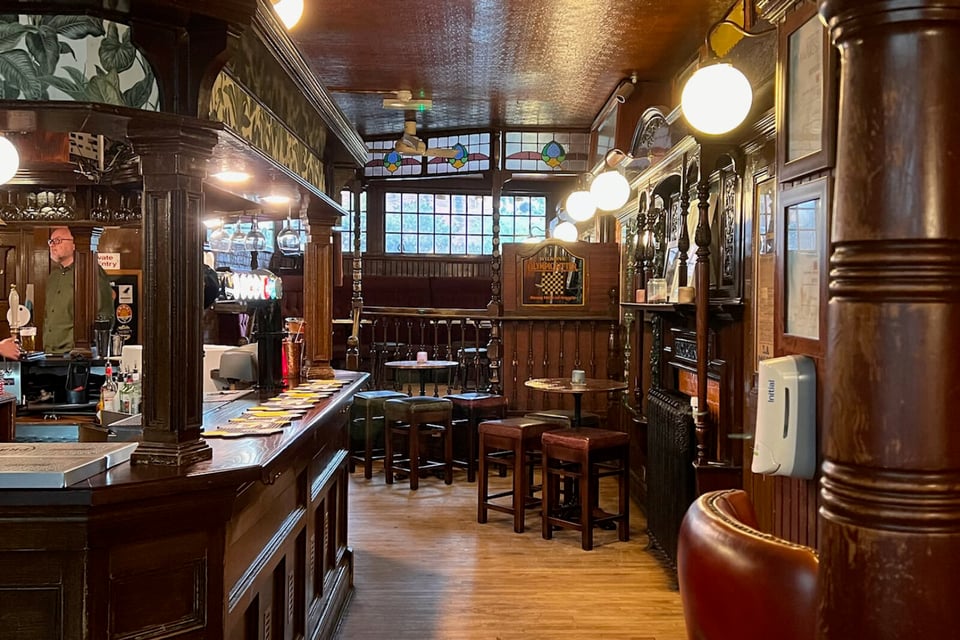
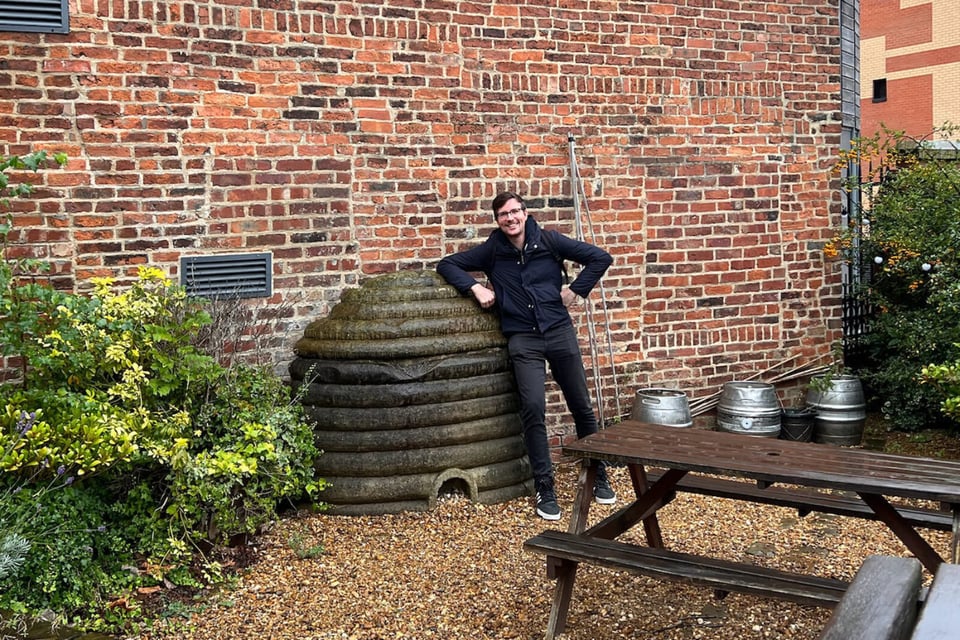
After around 1.5h we had seen it all, bought a few items in the shop, exchanged social media accounts (they featured us on their Insta a few days later) and left Rochdale, home-bound.
Here are some more impressions from the museum:
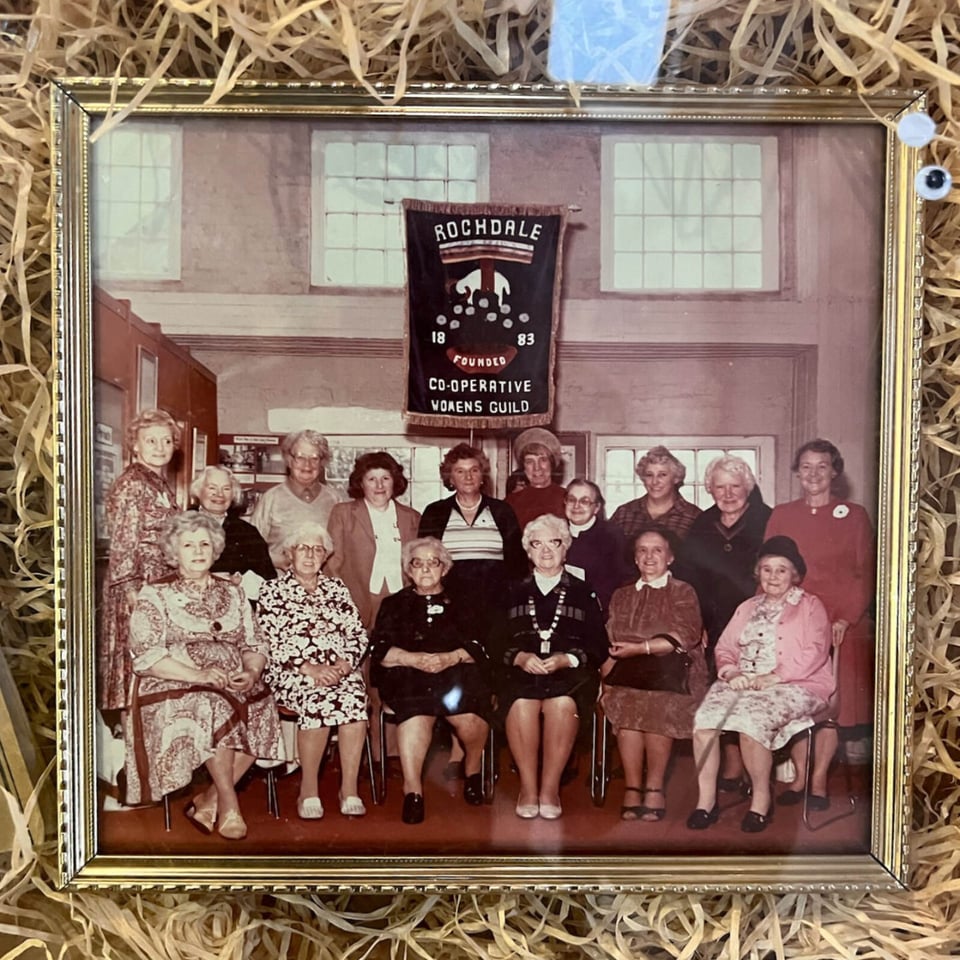
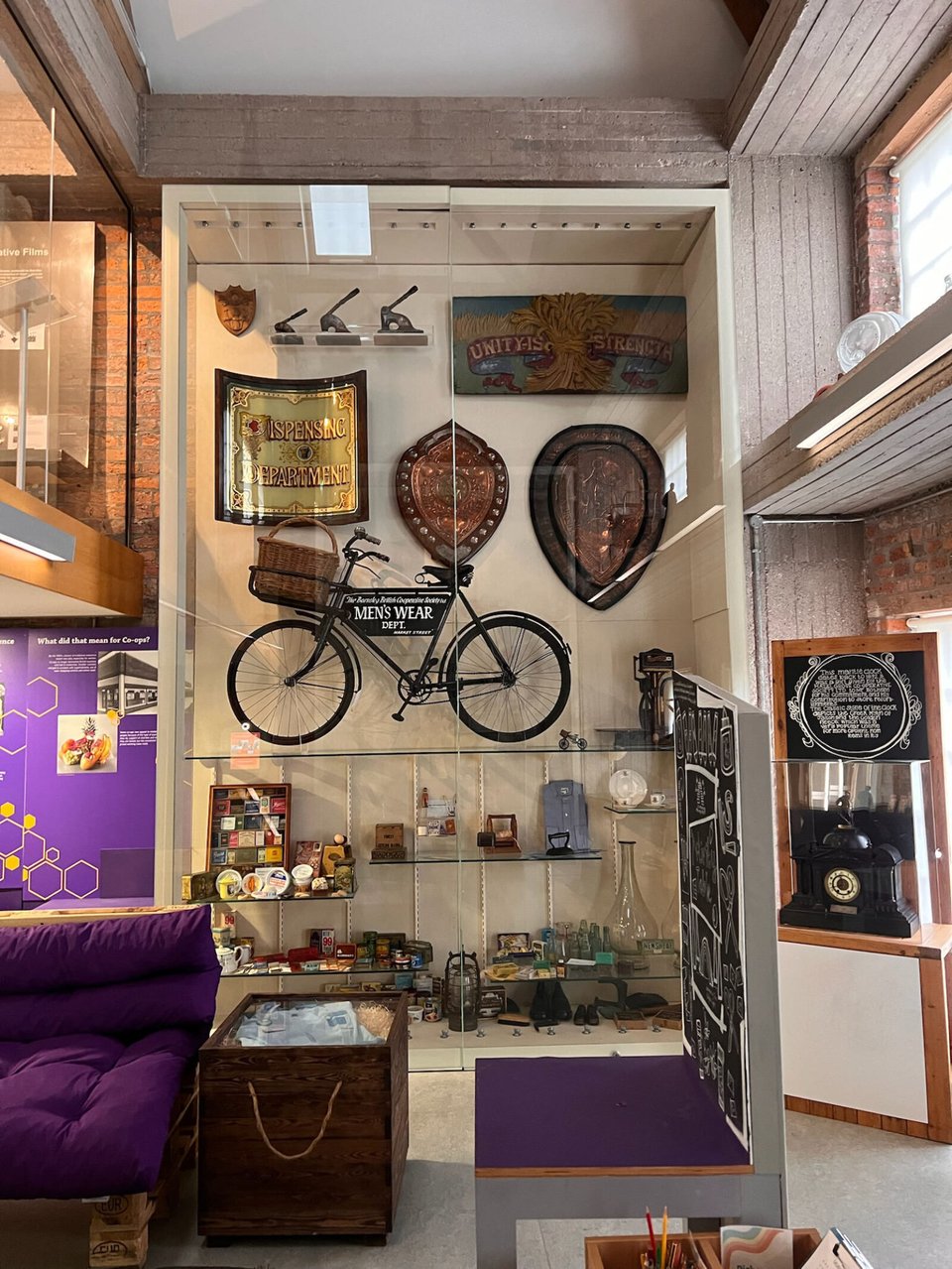
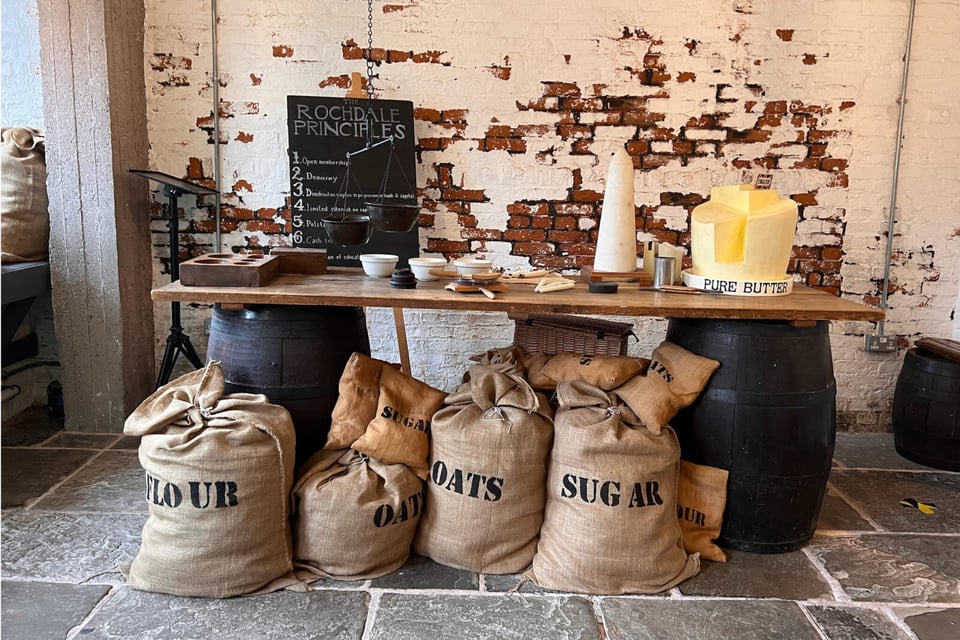
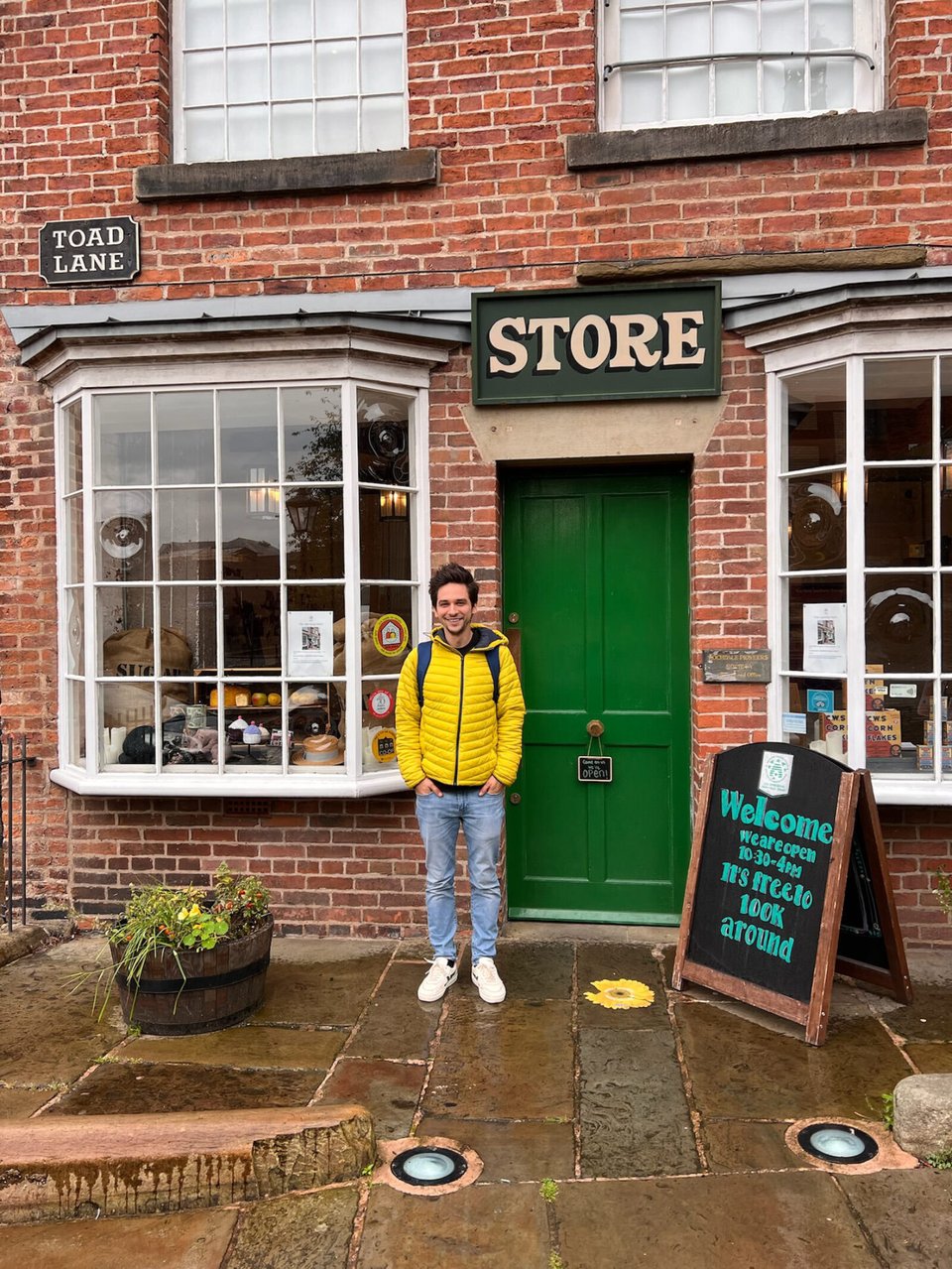
Today, over three million cooperatives exist world-wide, with over a billion members in total, and employing 280 million people (we contribute a whopping six with Village One). The principles of the Rochdale Pioneers live on as the voluntary foundation for all cooperatives today:
Voluntary and Open Membership
Democratic Member Control
Member Economic Participation
Autonomy and Independence
Education, Training, and Information
Cooperation among Cooperatives
Concern for Community
When we started Village One we weren’t yet sure about its structure, but once we read these principles, we knew we had to incorporate as a cooperative: a somewhat utopian company form with a focus on democracy + cooperation, to empower all members, not just a few shareholders at the top? Yes, please! Thanks go out to those brave folks in Rochdale 179 years ago, daring to imagine a more equitable future!
We hope you’re having a calm December and, as always, hit reply if you have any thoughts to share!
Take care,
Harry + the other five equitable members of the Village One Society
Further reading: